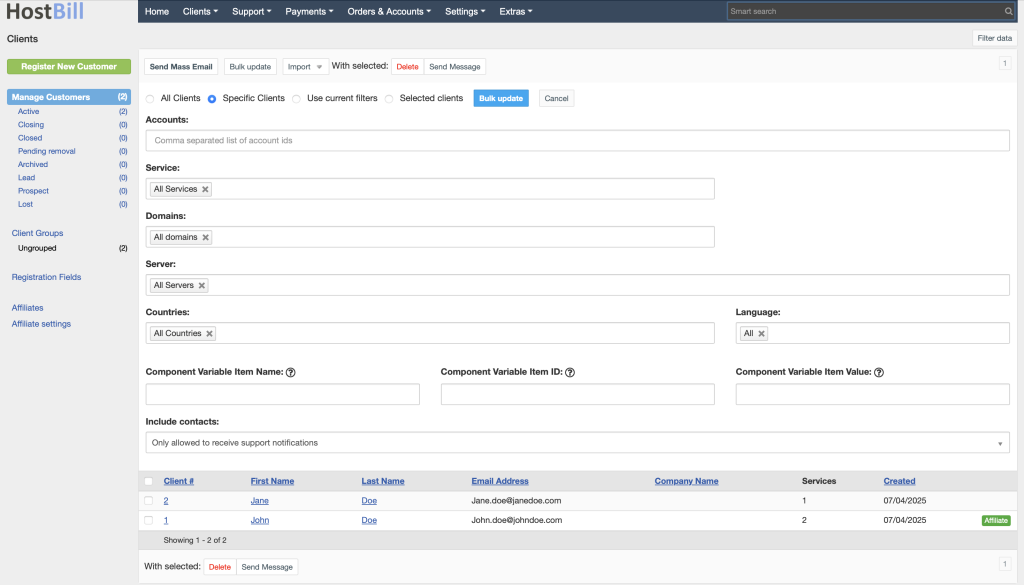New release: Bulk Client Profile Updates, smarter Fraud Protection & more enhancements
Today HostBill release brings a new set of improvements within client management thanks to the Bulk Client Profile Update feature; new features for fraud protection modules, OpenProvider and more!
Release notes
Managing a large customer base just became significantly simpler. HostBill now allows administrators to perform bulk updates across multiple client profiles at once. Whether you’re adjusting account details, updating specific fields, managing statuses, or synchronizing profile values after policy changes, this new feature helps you eliminate repetitive work and save time. Instead of opening and editing client records one by one, you can select multiple profiles and apply changes with a single action—perfect for large-scale cleanup, data corrections, or onboarding adjustments.

All fraud protection modules in HostBill now support a new option: Skip fraud checks for returning customers. This means trusted clients who already have a billing history can place new orders faster and with fewer barriers, while new clients continue to be fully verified through your configured fraud screening tools. It improves the order experience for loyal customers without compromising security.
A new hook—after_service_formschange—has been added to trigger whenever hosting or domain form fields are changed. This opens new possibilities for dynamic integrations, real-time configuration updates and automated workflows that react to customer form changes. Developers can now build more responsive and intelligent service logic around client actions.
Two improvements have arrived for the OpenProvider module. Admins can now re-add a custom automation task specifically for renewing a domain. This gives more control and flexibility when re-scheduling or restoring domain-related automation. A new debug mode allows you to enable request/response logs for easier troubleshooting and integration diagnostics.
The Password Manager module’s secretlink feature now supports a configurable expiration time (in hours), allowing to define how long sensitive information shared via email or document templates remains accessible—ensuring enhanced security and compliance with internal policies.
All details from today’s release can be found in the Changelog!


